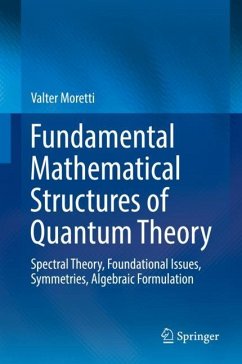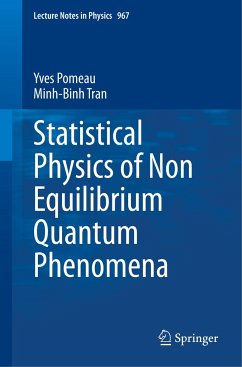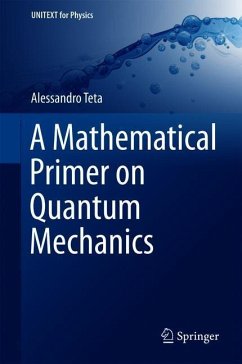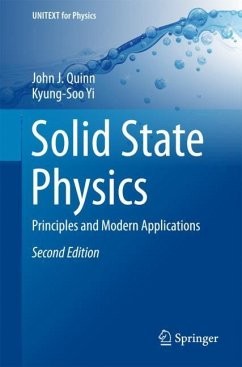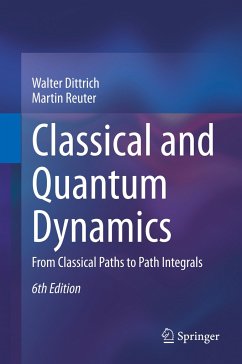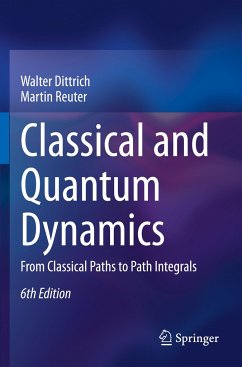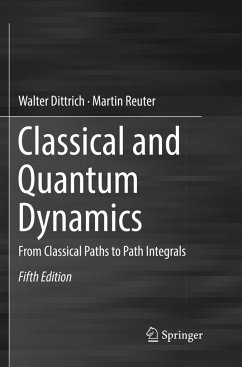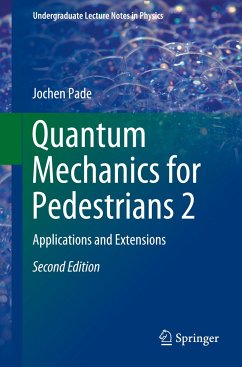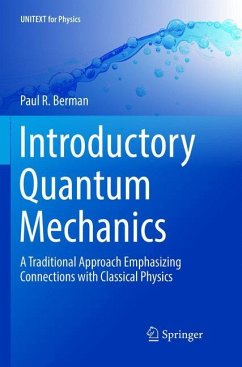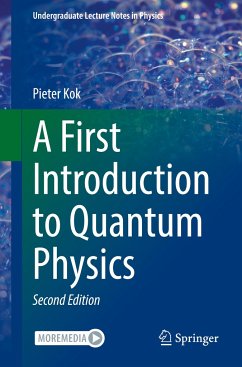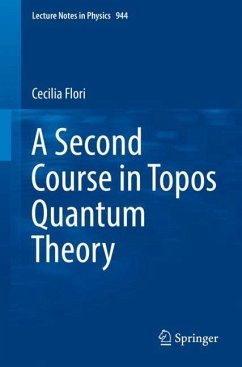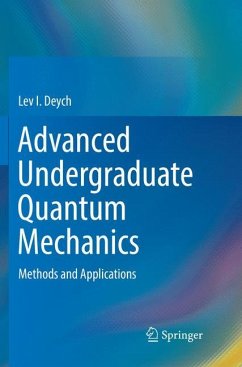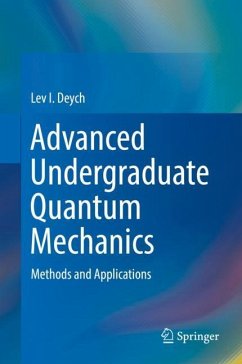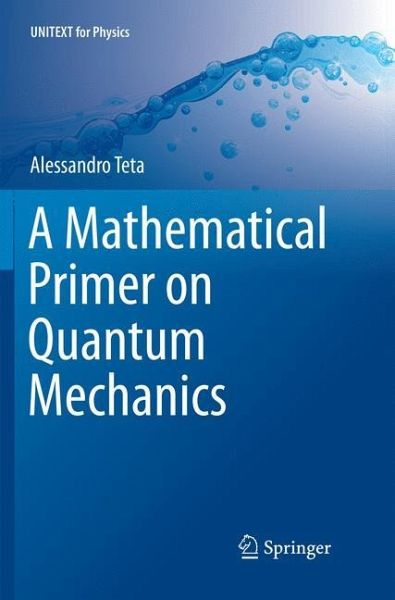
A Mathematical Primer on Quantum Mechanics
Versandkostenfrei!
Versandfertig in 6-10 Tagen
43,99 €
inkl. MwSt.
Weitere Ausgaben:

PAYBACK Punkte
22 °P sammeln!
This book offers a rigorous yet elementary approach to quantum mechanics that will meet the needs of Master's-level Mathematics students and is equally suitable for Physics students who are interested in gaining a deeper understanding of the mathematical structure of the theory. Throughout the coverage, which is limited to single-particle quantum mechanics, the focus is on formulating theory and developing applications in a mathematically precise manner.Following a review of selected key concepts in classical physics and the historical background, the basic elements of the theory of operators ...
This book offers a rigorous yet elementary approach to quantum mechanics that will meet the needs of Master's-level Mathematics students and is equally suitable for Physics students who are interested in gaining a deeper understanding of the mathematical structure of the theory. Throughout the coverage, which is limited to single-particle quantum mechanics, the focus is on formulating theory and developing applications in a mathematically precise manner.
Following a review of selected key concepts in classical physics and the historical background, the basic elements of the theory of operators in Hilbert spaces are presented and used to formulate the rules of quantum mechanics. The discussion then turns to free particles, harmonic oscillators, delta potential, and hydrogen atoms, providing rigorous proofs of the corresponding dynamical properties. Starting from an analysis of these applications, readers are subsequently introduced to more advanced topics suchas the classical limit, scattering theory, and spectral analysis of Schrödinger operators. The main content is complemented by numerous exercises that stimulate interactive learning and help readers check their progress.
Following a review of selected key concepts in classical physics and the historical background, the basic elements of the theory of operators in Hilbert spaces are presented and used to formulate the rules of quantum mechanics. The discussion then turns to free particles, harmonic oscillators, delta potential, and hydrogen atoms, providing rigorous proofs of the corresponding dynamical properties. Starting from an analysis of these applications, readers are subsequently introduced to more advanced topics suchas the classical limit, scattering theory, and spectral analysis of Schrödinger operators. The main content is complemented by numerous exercises that stimulate interactive learning and help readers check their progress.




